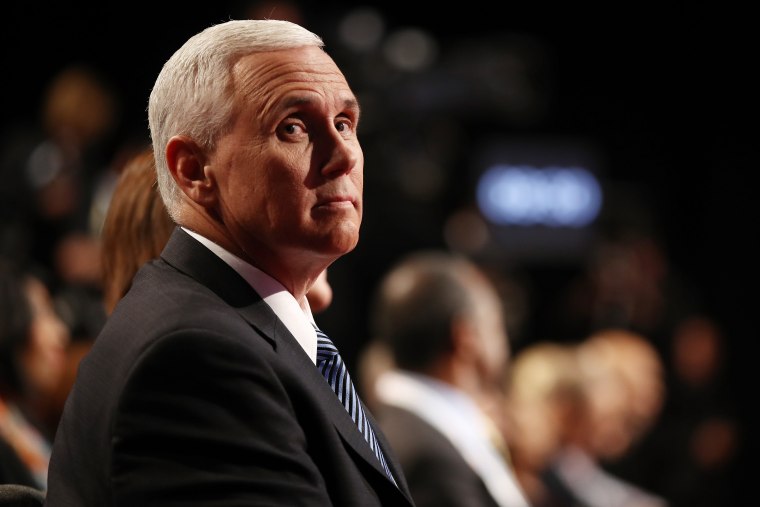First up from the God Machine this week is a look at Vice President Mike Pence's appearance on Wednesday at the annual meeting of the Southern Baptist Convention, which shouldn't have been especially controversial, but which turned into an unexpectedly contentious event.
The first sign of trouble came well ahead of Pence's remarks. The vice president was not originally scheduled to appear, but his office reportedly reached out to SBC leaders to request an opportunity to speak. Despite the Southern Baptists' reputation for conservatism, there was an organized effort on the part of some pastors, wary of overtly politicizing their gathering, to prevent Pence from speaking.
The motions failed, but the fact that the protests existed at all was emblematic of some divisions in the nation's largest Protestant denomination. The New York Times noted, "Some were especially concerned about the administration's stance on immigration and race, and Mr. Pence's allegiance to a president who has been accused of multiple instances of sexual misconduct."
The vice president spoke anyway, and gave a fairly predictable, partisan speech. By all accounts, Pence received hearty applause -- and more than a couple standing ovations -- from many of the Southern Baptists in attendance, but USA Today added that the vice president's speech "did not sit well with everyone in the convention hall and those watching online."
At about the time the speech ended, North Carolina Pastor J.D. Greear, the newly elected Southern Baptist Convention president, tweeted about public officials at the annual meeting."I know that sent a terribly mixed signal. We are grateful for civic leaders who want to speak to our Convention -- but make no mistake about it, our identity is in the gospel and our unity is in the great commission," Greear said. "Commissioned missionaries, not political platforms, are what we do."
Slate added, "[P]anning shots of the thousands of people in the room also captured many people sitting with their arms crossed through many applause lines."
Historians with expertise in this area agreed this was "the first real controversy in the convention about a GOP speaker since the evangelist Billy Graham pushed for the invitation of President Richard M. Nixon in 1972 and reveals the significant upheaval among conservative evangelicals about President Trump and the mixing of partisan politics and religion."
How divisive is Donald Trump? Divisive enough that Mike Pence can't show up at the annual meeting of the Southern Baptist Convention without sparking a fight.
Also from the God Machine this week:
* To defend the administration's family-separation policy toward immigrants, Attorney General Jeff Sessions argued this week, "Persons who violate the law of our nation are subject to prosecution. I would cite you to the Apostle Paul and his clear and wise command in Romans 13 to obey the laws of the government because God has ordained them for the purpose of order." Whether the attorney general knows this or not, slaveholders used to cite the same chapter and verse in the mid-19th century to justify their horrific practices.
* The Trump White House hosted a dinner last week in recognition of Ramadan. While other recent presidents have done the same thing, Trump last year failed to honor the tradition.
* And on Capitol Hill, House Republicans are once again trying to advance a change to federal tax law that would allow houses of worship to engage in partisan politics without putting their tax exemptions at risk. This has been a top priority for the religious right movement for quite a while and the Trump White House has been pushing the idea aggressively since taking office.
